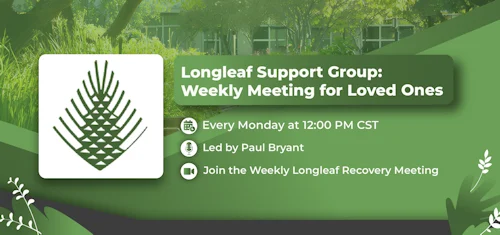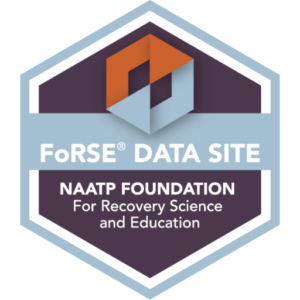Holistic therapy has emerged as a unique and innovative approach to addiction treatment, gaining recognition as a valuable additional intervention for individuals seeking overall mental, physical, and spiritual recovery. Through the transformative power of holistic therapy and its use of mindfulness practices, individuals can develop the skills they need to successfully face various obstacles that come during the recovery process. Here’s what you need to know.
Understanding Addiction
What Is Addiction?
Addiction is a complex and challenging condition that many people face. At times, it can be a chronic, relapsing disorder, meaning that it can persist over time and may involve periods of recovery and relapse. It’s important to approach this topic with empathy and understanding, as addiction can have a profound impact on individuals and their loved ones.
Individuals dealing with addiction experience a strong compulsion to seek and use substances, even when faced with negative consequences. This condition is also considered a brain disorder, as it affects the intricate circuits in the brain that regulate reward, stress, and self-control.
How Does Addiction Develop?
The path of addiction often begins with individuals trying recreational drugs in social settings out of curiosity. Unfortunately, for some individuals, this occasional substance use gradually progresses to more frequent and regular consumption. In some cases, individuals may also develop drug addiction when they take prescribed medications or illegally obtain them from others who have valid prescriptions.
Initially, addictive substances work by distorting how the brain perceives and responds to pleasure. With continued use, the brain requires higher doses of the substance to feel a sense of well-being, which disrupts other essential mental processes, like learning and motivation. Over time, you may notice that it becomes more challenging to abstain from using these drugs.
Unfortunately, these effects can pose serious consequences and persist for some time, even after you discontinue substance usage. This is why it is crucial to approach addiction treatment from a comprehensive, long-term perspective.
How Is Addiction Treated?
Treatment programs for addiction or substance use disorders typically provide a range of services, such as:
- Detoxification programs
- Counseling and psychotherapy (individual, group, or family)
- Holistic therapy
These treatment options are designed to address the unique needs of each person and their loved ones, fostering healing and recovery in a supportive environment.
During the process of treatment and early recovery, the person goes through important behavioral changes to cope with the absence of addictive substances. At the same time, their brain also has the potential to undergo healing.
By teaching mindfulness and helping individuals build healthy habits, holistic therapy plays an important role in the recovery process by helping people recognize their triggers and develop effective coping strategies.
Understanding Holistic Therapy
Holistic therapy recognizes the importance of addressing all aspects of a person’s well-being, including their physical, mental, and spiritual health. When a person receives treatment that addresses their overall wellness instead of solely targeting the symptoms of addiction, they have the potential to effectively address substance abuse and experience positive changes in various areas of their life. Many types of holistic therapy are based on the concept of mindfulness.
What Is Mindfulness?
Mindfulness is a mental state that allows us to fully immerse ourselves in the present moment. By gently directing our attention to the here and now, we can cultivate a deep sense of awareness and acceptance of our thoughts, emotions, and physical sensations. This powerful practice has been widely embraced as a therapeutic technique in mental health and addiction treatment.
Common Holistic Therapies and How They Help in Addiction Treatment
Meditation
Meditation is a holistic therapy practice that works by uniting the mind and body, helping individuals reach a state of tranquility and deep relaxation. It also has the potential to help individuals manage stress and effectively deal with situations that could potentially trigger a relapse into substance abuse. Incorporating different meditation practices into an addiction treatment program can offer a range of benefits. These practices may include breathing exercises, mantras, visualizations, and mindful walking.
Yoga
Yoga is an anaerobic exercise that combines physical, mental, and spiritual practices. While there are various forms of yoga that can be incorporated into holistic therapy, it typically involves performing specific postures, breathing exercises, meditation, and stretching.
Yoga is a valuable tool for recovery as it offers a way to maintain resilience and stability during the recovery process. Additionally, the physical activity from this practice can also assist in naturally eliminating toxins from the body.
Exercise
Engaging in regular physical activity can serve as a beneficial alternative to harmful substance use. The reason for this is that exercise and addictive substances have an impact on similar areas of your brain. Both of these stimulate your brain’s reward system, leading to the release of chemicals that make you feel good, such as serotonin and dopamine.
Multiple studies have demonstrated that incorporating physical activity in holistic therapy for addiction can lead to a reduction in substance use. Additionally, exercise has the potential to alleviate symptoms of depression, which are often associated with drug abuse.
Nutrition Counseling
Adopting a nutritious and well-balanced diet can have a positive impact on both mental well-being and physical recovery from substance abuse. Nutrient deficiencies can trigger cravings for certain substances. Taking steps to eliminate these deficiencies not only benefits your overall well-being but also helps you regain control over cravings.
Holistic therapy may often include nutrition counseling to help individuals prioritize their health, set positive goals, and develop personalized plans for self-care during their recovery journey.
Explore Holistic Addiction Treatment in Birmingham, AL
Addressing the disease of addiction requires a multifaceted approach that incorporates various modalities, such as holistic therapy. At Birmingham Recovery Center, we understand the complex nature of addiction and the importance of offering a wide range of treatment options.
At our holistic recovery center in Birmingham, AL, we believe in the power of combining traditional therapies with practical and positive strategies for long-term recovery. We recognize that true healing goes beyond just treatment sessions, and that’s why we emphasize the importance of incorporating healthy habits and effective stress management techniques into your daily life.
If you’re interested in exploring the benefits of yoga, good nutrition, exercise, mindfulness, or other holistic therapies while receiving addiction treatment, we are here to help. Contact us today to learn more about our programs.






